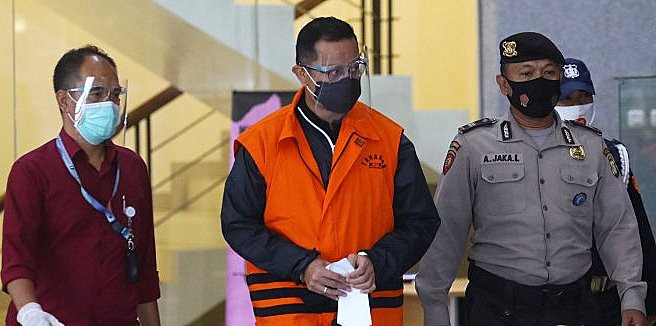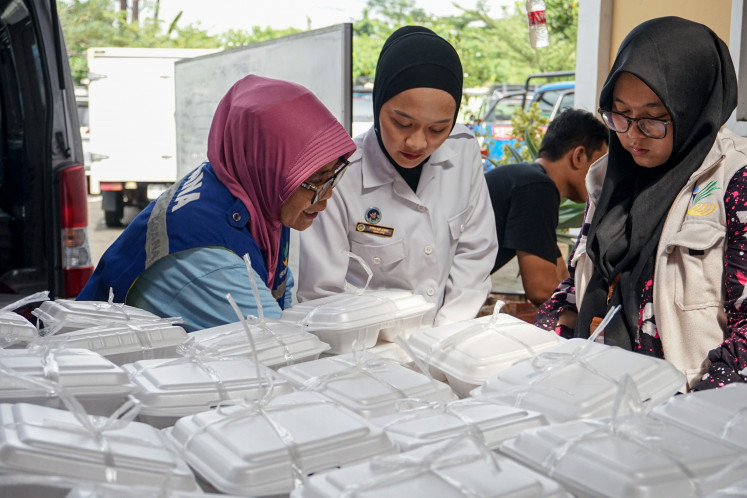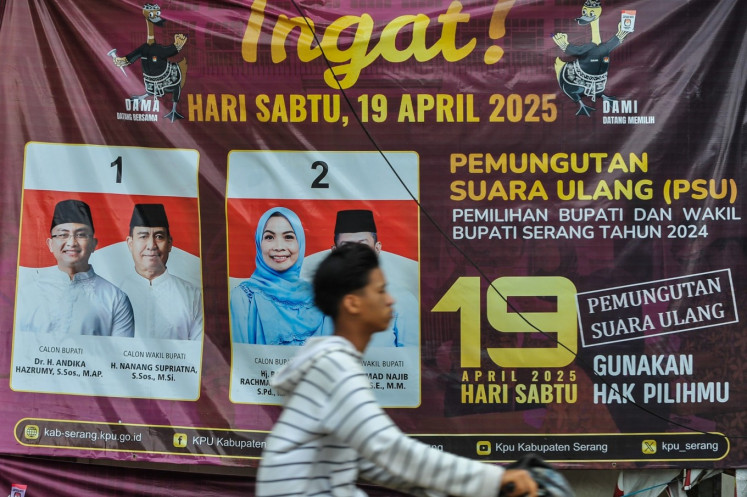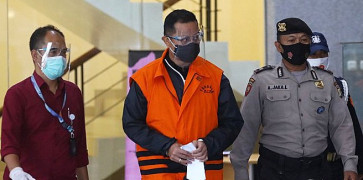Popular Reads
Top Results
Can't find what you're looking for?
View all search resultsPopular Reads
Top Results
Can't find what you're looking for?
View all search resultsCOVID-19: State of emergency doesn’t justify lack of transparency
The prevalence of economic bias in the policy design without wider participation of stakeholders in the democratic governance is argued to have increased the risks of corruption.
Change text size
Gift Premium Articles
to Anyone
T
he COVID-19 pandemic has exposed the government to a form of corruption that stems from the emergency procurement of goods and services intended for serving the economic recovery agenda.
Studies, including by Federica Cacciatore et al. in 2022, show that there is a link between economic recovery programs with increased cases of corruption. This has also played out in Indonesia, where its policy responses toward COVID-19 have heavily focused on the goals of economic recovery (Greg Fealy, 2020).
To activate this policy function, the Finance Ministry allocated Rp 744.75 trillion (US$53 billion) in 2021 for the economic recovery agenda across the country via the establishment of social safety and healthcare programs (The Jakarta Post July 19, 2021).
Such a hefty budget implemented under an economic-oriented policy called for greater public monitoring to minimize corruption risks. However, questions remain as to whether such transparency of information existed in the emergency crisis situation to mitigate corruption risks, and what role the economic-oriented policy played in this risk.
Corruption risk is defined as the potential of mismanaging the allocated public funds for procuring public goods in an urgent manner, such that it does not address the needs of the communities and instead serves powerful interests. The government’s ambition to restore the nation’s economy as quickly as possible has led to such a prompt response without a detailed planning system – from procurement and distribution to the process of administering the public goods.
In the case of COVID-19 vaccines, Presidential Regulation No. 99/2020 allows direct procurement of vaccines by directly appointing the suppliers of vaccines, such as CoronaVac, to accelerate economic recovery. However, the procurement contracts are still yet not available for public monitoring and there have been issues with the transparency of vaccine distribution and registration (Transparency International, 2022). Consequently, there have been cases of rapidly expired vaccines (Reuters, March 1, 2022) resulting in wastage.
It is argued that vaccines were wasted because they were delivered to faraway places or because people did not turn up. However, should the government have had an adequate system of vaccine registration, they would have known exactly how many doses they needed to deliver to different locations.



















